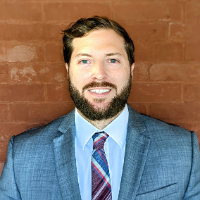 Clayton Juvenile Law Lawyers, Delaware
Clayton Juvenile Law Lawyers, Delaware
Sponsored Law Firm
-
 x
x

Click For More Info:
-
Christofer C. Johnson, Esq.
1201 North Orange St Suite 501 Wilmington, DE 19801» view mapCriminal Defense Law Get The Support You Need For Your Case
Christofer C. Johnson, Esq. has a track record of successful case outcomes and provides legal counsel for a reasonable price.
800-941-4370
Sponsored Lawyers
1-1 of 1 matches
Criminal, Juvenile Law, Misdemeanor, Felony
Michael DegliObizzi is a criminal defense attorney with an office based out of Wilmington, Delaware. He is a former criminal prosecutor and supervising attorney at the Delaware Department of Justice. Michael is a seasoned trial attorney, having tried over 75 cases to verdict in the Justice of the Peace Courts, Court of Common Pleas, and Superior Court. He handles all types of criminal matters including traffic offenses, misdemeanor and felony level offenses (assaults, drugs, firearm, etc.), Driving Under the Influence cases, Domestic Violence cases, juvenile offenses, violations of probation, expungements and pardons, and preliminary hearings. Michael graduated from Duke University in 2009 with a bachelor's degree in History and a certificate in Markets and Management Studies. He was a varsity letter winner for Duke's Division I wrestling team and was honored as a National Wrestling Coaches Association Academic All American in 2008, as well as an Atlantic Coast Conference Academic Honor Roll member in 2006, 2007, 2008, and 2009. Michael then attended law school at Villanova University School of Law where he earned his Juris Doctor degree in 2012. He then successfully passed the Delaware Bar Exam and began his legal career in the Criminal Division at the Delaware Department of Justice where he prosecuted misdemeanor criminal offenses in the Court of Common Pleas and Justice of the Peace Courts. He primarily focused on DUI cases and was the lead attorney responsible for running the Court of Common Pleas’ Mental Health Court on behalf of the State. He progressed in his duties to handling complex felony cases including financial related crimes, Burglary, Robbery, Drug Dealing, and weapon/firearm related offenses. Additionally, Michael has successfully prosecuted several homicide and gang participation cases. In 2016, Michael was promoted to be the Assistant Unit Head of the Misdemeanor Trial Unit where he supervised all new criminal Deputy Attorneys General as they entered the office. He was responsible for teaching new prosecutors how to handle a caseload and take a case to trial. As part of his duties, he reviewed every misdemeanor DUI arrest in New Castle County to determine the appropriate plea offer. Michael is certified in DWI Detection and Standardized Field Sobriety Testing by the National Highway Traffic Safety Administration. He has led numerous DUI trainings for both law enforcement officers and attorneys. In 2018, Michael was promoted to Unit Head of the Domestic Violence Unit. He supervised a team of Deputy Attorneys General, paralegals, administrative specialists, and social workers that handled misdemeanor and felony domestic violence, child abuse, and elder abuse cases. He was the Attorney General’s designee on the Fatal Incident Review Team, the Victim Services Advisory Committee, and the Domestic Violence Coordinating Council committees. While in law school, Michael served as a judicial intern for the Honorable Chief Justice Myron T. Steele of the Delaware Supreme Court. He also interned at the law firm of Kimmel, Carter, Roman, Peltz & O'Neill, P.A.
(more)


 Christofer Johnson Wilmington, DE
Christofer Johnson Wilmington, DE AboutChristofer C. Johnson, Esq.
AboutChristofer C. Johnson, Esq. Practice AreasExpertise
Practice AreasExpertise

